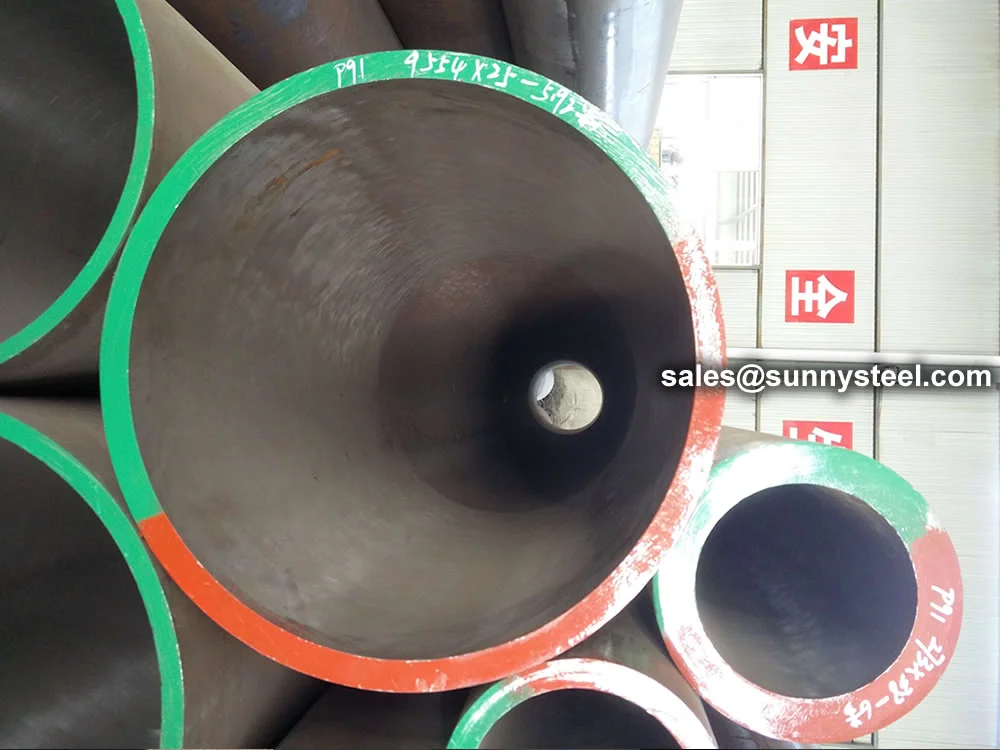
Seamless Chrome Moly Piping For Sour Service And Creep Strength
Astm a335 p91 nace pipe offers superior creep strength and corrosion resistance, ideal for sour service and high-temperature boiler pipeline protection in harsh environments.
Seamless Chrome Moly Piping For Sour Service And Creep Strength
Astm a335 p91 nace pipe offers superior creep strength and corrosion resistance, ideal for sour service and high-temperature boiler pipeline protection in harsh environments.
ASTM A335 P91 NACE Pipe is a seamless ferritic alloy steel pipe engineered for high-temperature and high-pressure service, offering exceptional corrosion resistance and creep resistance in sour service environments. Conforming to the ASTM A335/ASME SA335 specification and compliant with NACE MR0175/ISO 15156 standards for sour service, this Chrome Moly Pipe is formulated with 8.00-9.50% chromium, 0.85-1.05% molybdenum, and enhanced with vanadium, niobium, and nitrogen, making it a creep strength enhanced ferritic (CSEF) steel. It is ideal for boiler pipeline protection in supercritical and ultra-supercritical power plants, petrochemical industries, and sour service piping systems exposed to hydrogen sulfide (H2S).
The ASTM A335 P91 NACE Pipe is manufactured through hot-rolling or cold-drawing processes, followed by precise heat treatment: normalizing at 1040-1080°C and tempering at 730-800°C to achieve a martensitic microstructure with superior mechanical properties. The addition of vanadium (0.18-0.25%), niobium (0.06-0.10%), and nitrogen (0.03-0.07%) enhances creep strength, enabling reliable performance at temperatures up to 650°C. Compliance with NACE MR0175 ensures resistance to sulfide stress cracking (SSC) in H2S-containing environments, critical for oil and gas applications. The pipe is designed for bending, flanging, and fusion welding, requiring preheating (200°C) and post-weld heat treatment (PWHT at 730-760°C) to prevent cracking, especially for thicker walls. Available in sizes from 1/2” to 24” (DN15 to DN600), with wall thicknesses from SCH 40 to SCH XXS, and lengths up to 16 meters or customized, it meets diverse project specifications.
The Seamless Alloy Pipes undergo stringent testing, including tensile, flattening, hardness, hydrostatic, and NACE-specific tests (e.g., SSC and HIC tests per NACE TM0177 and TM0284), to ensure compliance with ASTM A335 and NACE standards. With a minimum tensile strength of 585 MPa, yield strength of 415 MPa, and elongation of 20%, the pipe provides robust resistance to high temperatures and pressures. Its corrosion resistance, driven by high chromium content, makes it ideal for handling corrosive fluids and gases in petrochemical and sour service applications, while its creep resistance ensures long-term performance in high-pressure steam lines. Surface treatments like oil-dip, varnish, passivation, or 3LPE/FBE coatings enhance durability, and plain or beveled ends facilitate seamless installation.
Compared to grades like P22 or P11, the ASTM A335 P91 NACE Pipe is optimized for supercritical and ultra-supercritical boiler systems and sour service environments due to its enhanced creep strength and H2S resistance, allowing for thinner walls and improved thermal efficiency. Its ability to withstand hydrogen sulfide corrosion and stress corrosion cracking makes it a preferred choice for oil and gas pipelines in harsh conditions. Compatible with ASTM A234 WP91 fittings, it ensures seamless integration into complex piping systems, making it a reliable choice for engineers seeking durable sour service piping and industrial piping solutions for extreme environments.
| Element | Composition (%) |
|---|---|
| Carbon (C) | 0.08–0.12 |
| Manganese (Mn) | 0.30–0.60 |
| Phosphorus (P) | ≤0.02 |
| Sulfur (S) | ≤0.01 |
| Silicon (Si) | 0.20–0.50 |
| Chromium (Cr) | 8.00–9.50 |
| Molybdenum (Mo) | 0.85–1.05 |
| Vanadium (V) | 0.18–0.25 |
| Niobium (Nb) | 0.06–0.10 |
| Nitrogen (N) | 0.03–0.07 |
| Property | Value |
|---|---|
| Tensile Strength (MPa) | 585 min |
| Yield Strength (MPa) | 415 min |
| Elongation (%) | 20 min |
| Hardness (HBW) | ≤250 |
| Grade | UNS Designation | Chemical Composition % | |||||||
|---|---|---|---|---|---|---|---|---|---|
| P91 Type 1 | K91560 | C | Mn | P | S | Si | Ni | Cr | Mo |
| 0.08-0.12 | 0.30-0.60 | 0.020 | 0.010 | 0.20-0.50 | 0.40 max | 8.00-9.50 | 0.85-1.05 | ||
| V | N | Al | Cb | Ti | Zr | Sn | Sb | ||
| 0.18-0.25 | 0.030-0.070 | 0.02 max | 0.06-010 | 0.01 max | 0.01 max | _ | _ | ||
| P91 Type 2 | K91560 | C | Mn | P | S | Si | Ni | Cr | Mo |
| 0.08-0.12 | 0.30-0.50 | 0.020 | 0.005 | 0.20-0.40 | 0.40 max | 8.00-9.50 | 0.85-1.05 | ||
| V | N | Al | Cb | Ti | Zr | Sn | Sb | ||
| 0.18-0.25 | 0.035-0.070 | 0.02 max | 0.06-0.10 | 0.01 max | 0.01 max | 0.010 max | 0.003 max | ||
ASTM A335 P91 Type 1 & Type 2 have subtle differences mainly in elements Mn, S, Si, N, Sn and Sb content, and Type 2 has stricter requirements on element content than Type 1. P91 type 1 and 2 shall have a hardness within the range of 190 to 250 [HBW] or 196 to 265 [HV] or 91 HRBW to 25 HRC.
P91 (9Cr-1Mo-V-Nb) is a high-performance ferritic alloy steel designed for high-temperature service in power plants and petrochemical systems.
Maintains mechanical performance up to 600°C, allowing reduced wall thickness in steam piping and headers.
Withstands aggressive thermal and chemical environments, supporting advanced boiler design.
Offers up to 10× longer fatigue life compared to conventional steels, reducing shutdowns and failures.
Requires controlled heat treatment to maintain tempered martensitic structure and creep strength.
Chromium, molybdenum, vanadium, and niobium enhance strength, oxidation resistance, and weldability.
Widely used in superheaters, reheaters, HRSGs, and headers with compatible welding consumables.
P91 alloy steel has become the industry standard for high-efficiency power plant systems. It delivers exceptional performance in demanding thermal environments and is essential for systems operating under high pressure and temperature conditions.

ASTM A335 chrome moly pipes are widely used in various industries due to their excellent mechanical properties and resistance to high temperatures.
Used in high-temperature and high-pressure boiler tubes, superheaters, and reheaters for efficient energy conversion.
Applied in refineries and petrochemical plants to transport high-temperature hydrocarbons.
Used in facilities handling corrosive and high-temperature fluids during various chemical reactions.
Employed in nuclear power plants for critical piping systems resistant to extreme heat and pressure.
Used in furnaces and heat exchangers due to excellent resistance to high temperature and thermal fatigue.
Applied in high-pressure steam systems in industries like pulp and paper where thermal durability is essential.
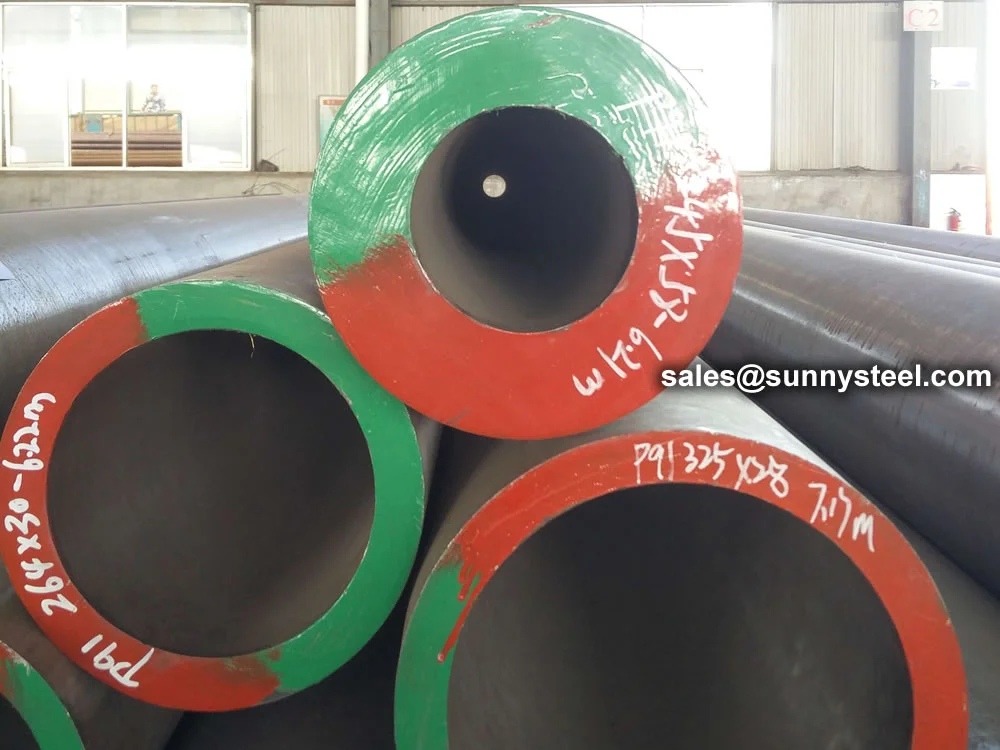
Astm a335 p91 alloy steel seamless pipe offers exc...
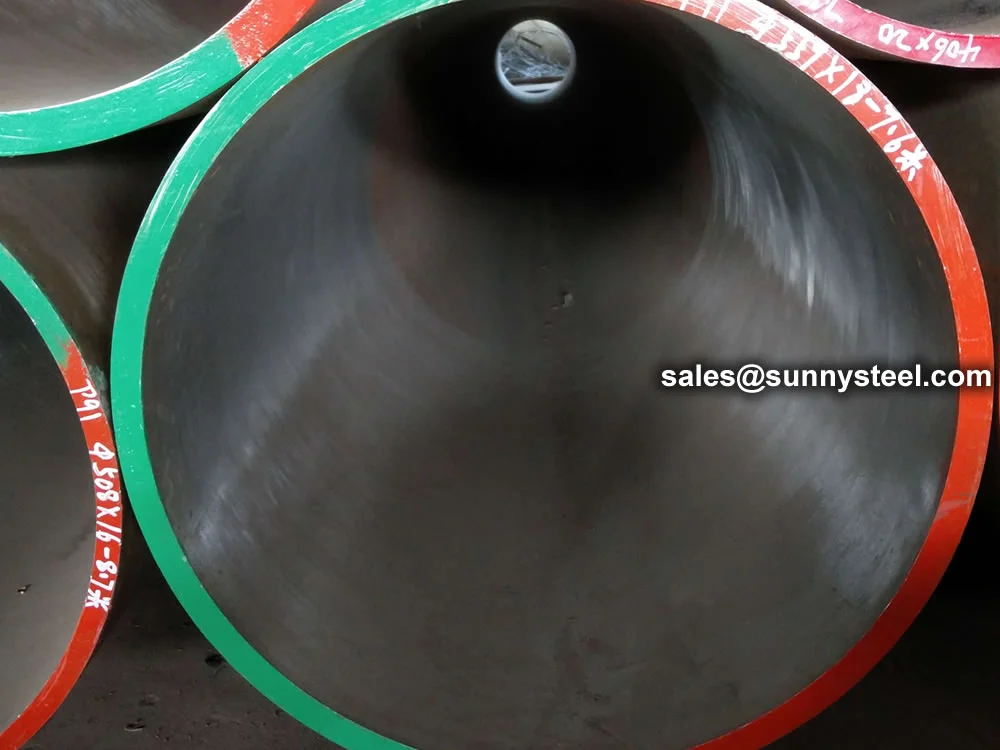
Astm a335 p91 chrome moly pipe delivers exceptiona...
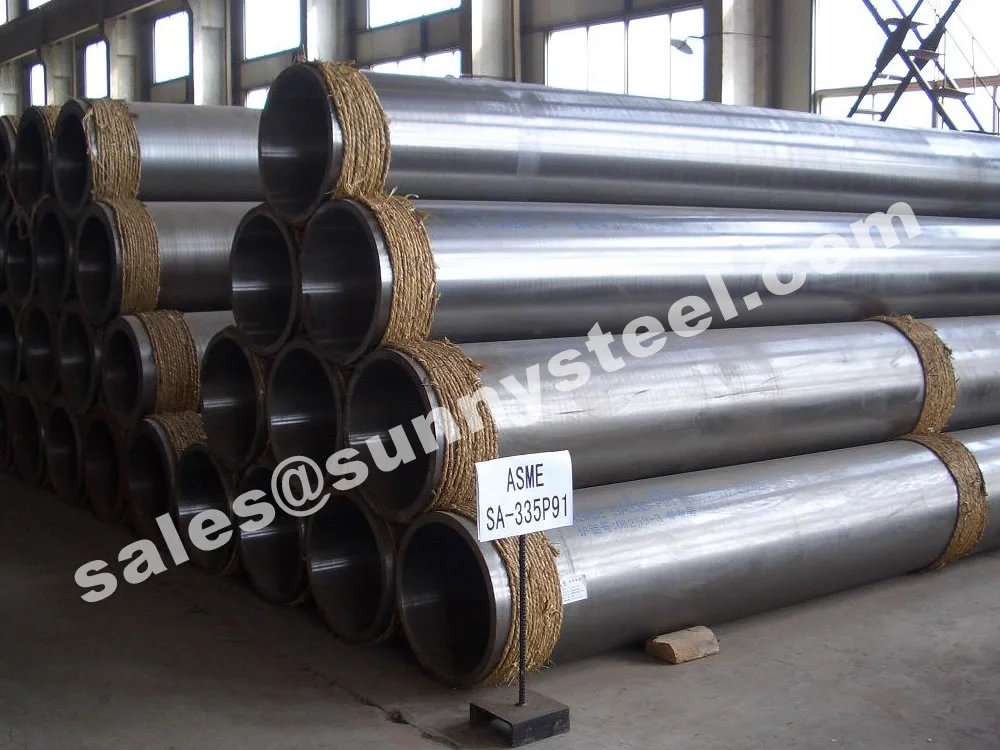
Astm a335 p91 alloy steel pipe spool offers superi...
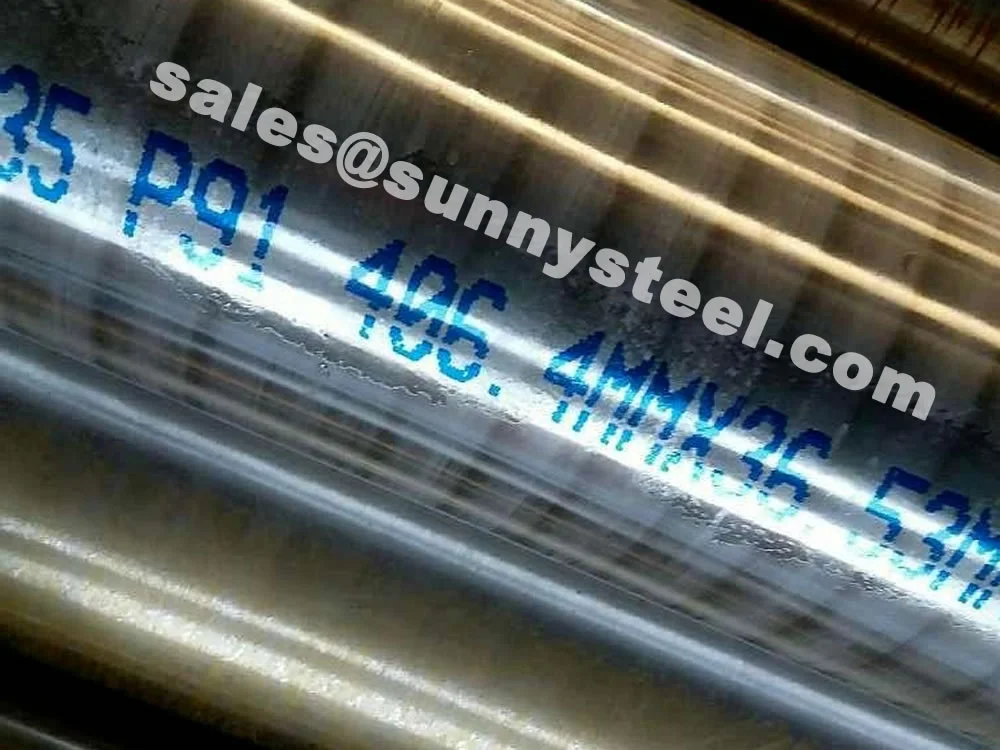
Alloy steel a335 p91 pipes deliver superior creep ...